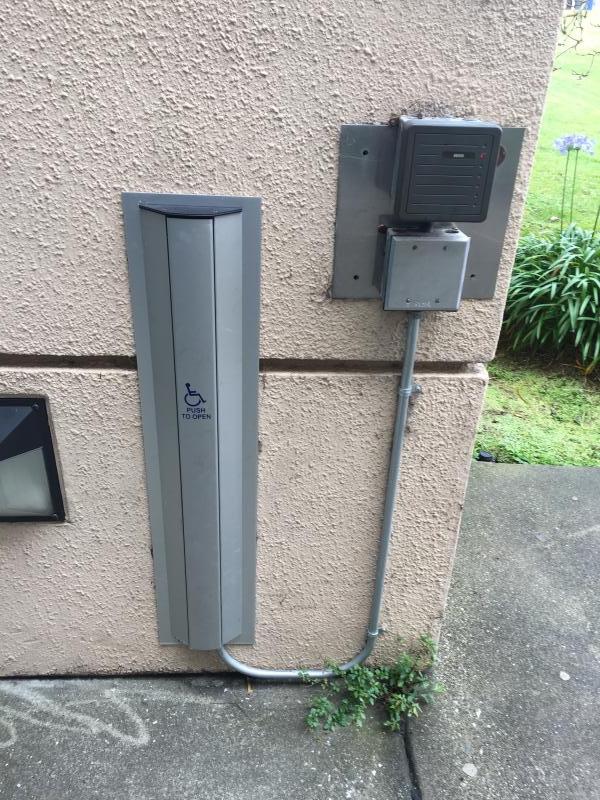By: Catherine Kudlick
Right up there with “handicapped” parking spots, ramps into buildings, and braille in elevators, automatic door openers are the most prominent public symbols of the Americans with Disabilities Act (ADA). In case someone happened to forget or never thought about it, every little bar to open a door even has a little wheelchair symbol.
So, when I arrived at Umeå University for my month-long visiting professorship, one of the first things I noticed was that the openers didn’t have little wheelchairs on them. Ok, it’s Sweden, so there’s no ADA. But every door had an automatic opener, and they were just part of daily life. Whether you used a wheelchair or not, you needed them because it was really cold and the doors at the modern university were all ridiculously heavy and when you’re half-frozen, stomping in with boots and thick gloves, you might appreciate being able to tap on an automatic opener.
In other words, the automatic openers weren’t labeled as “special” - they simply opened the door.

Swedish Door Opener

American Door Opener
I was fascinated by the implications. With all the talk of “universal design,” why do we need a wheelchair symbol on automatic door openers? I wondered how many people in the USA either consciously or unconsciously don’t use them because they imply stigma and needing help. Without the label, they’d be door openers for everyone, just like OXO Good Grips kitchen tools and so many other “assistive devices” that started out special and are now mainstream.
Other implications: would having a wheelchair symbol on something mechanical make it more or less likely that it would be repaired if it broke down? I imagine fears of lawsuits and/or a sense of urgency when something with a wheelchair on it needs to be fixed. But then again, when something is understood to be for “just a few of those people,” it might not seem as urgent as it does when everybody depends on something. In other words, when an automatic door opener without a wheelchair symbol on it stopped working, the urgency would be framed as “the door can’t be opened” as opposed to “the automatic door needs to be repaired.”
But then I had this other thought: if all the wheelchair symbols were removed from automatic door openers, maybe people would forget to thank disabled people for making everyone’s world a little better.